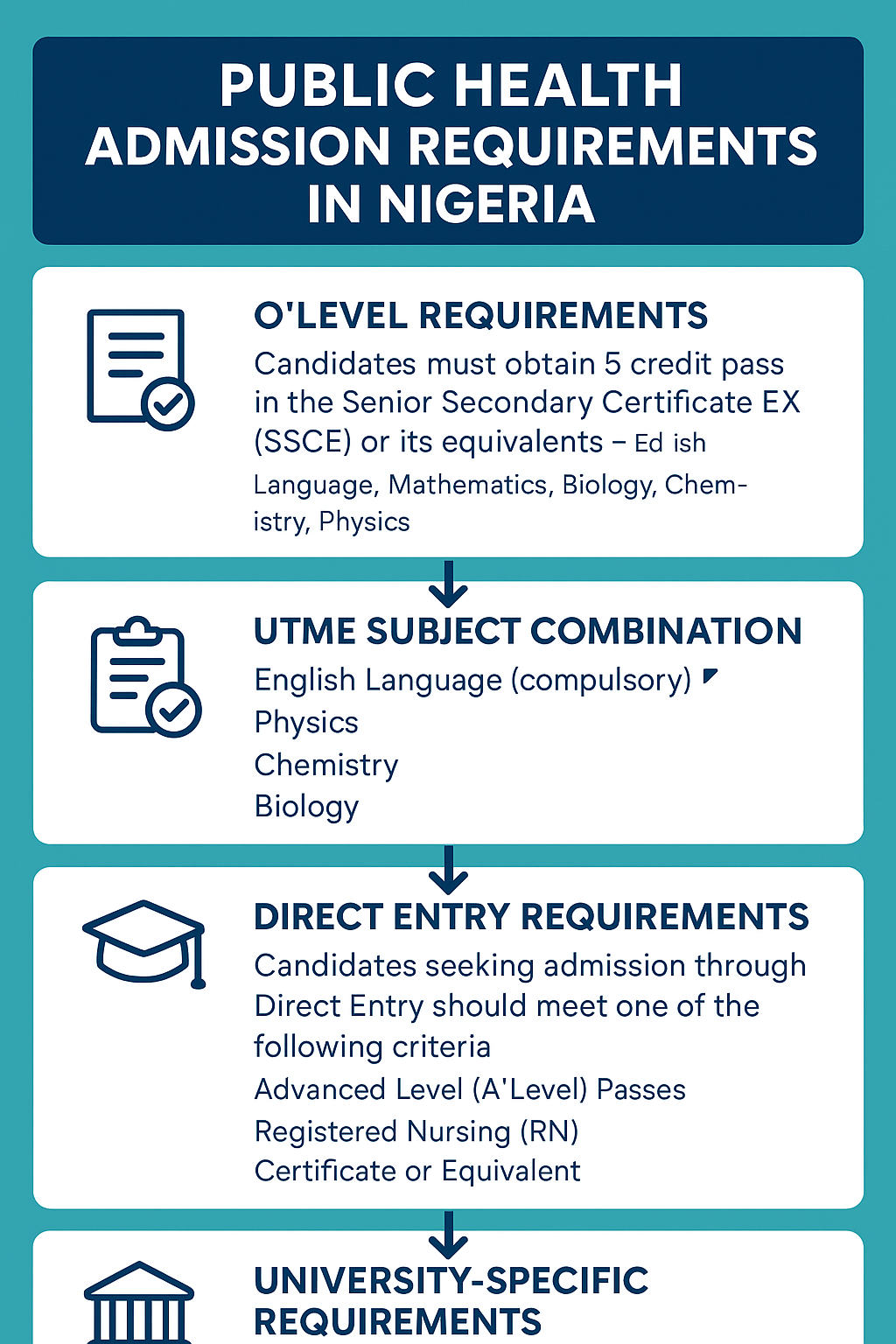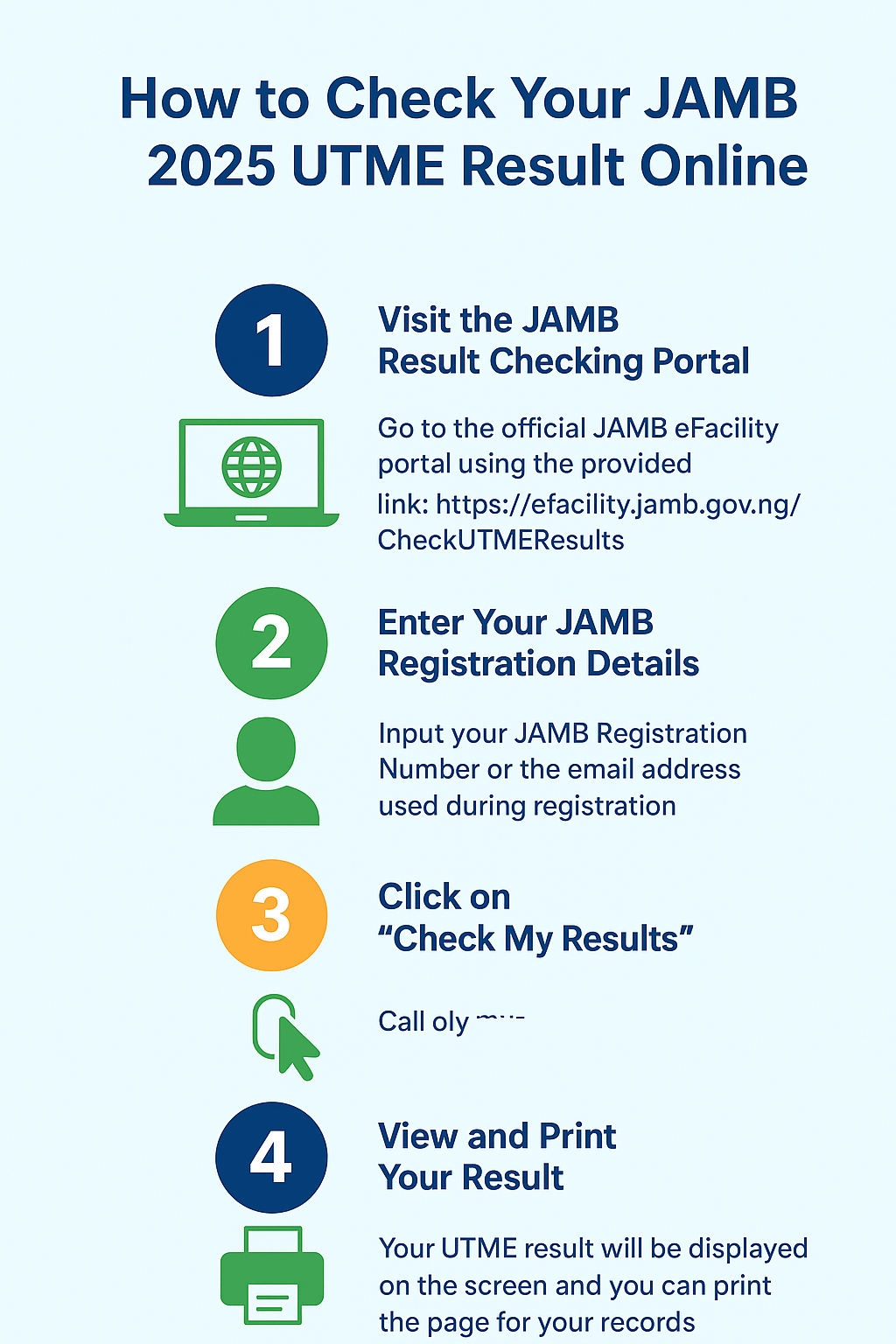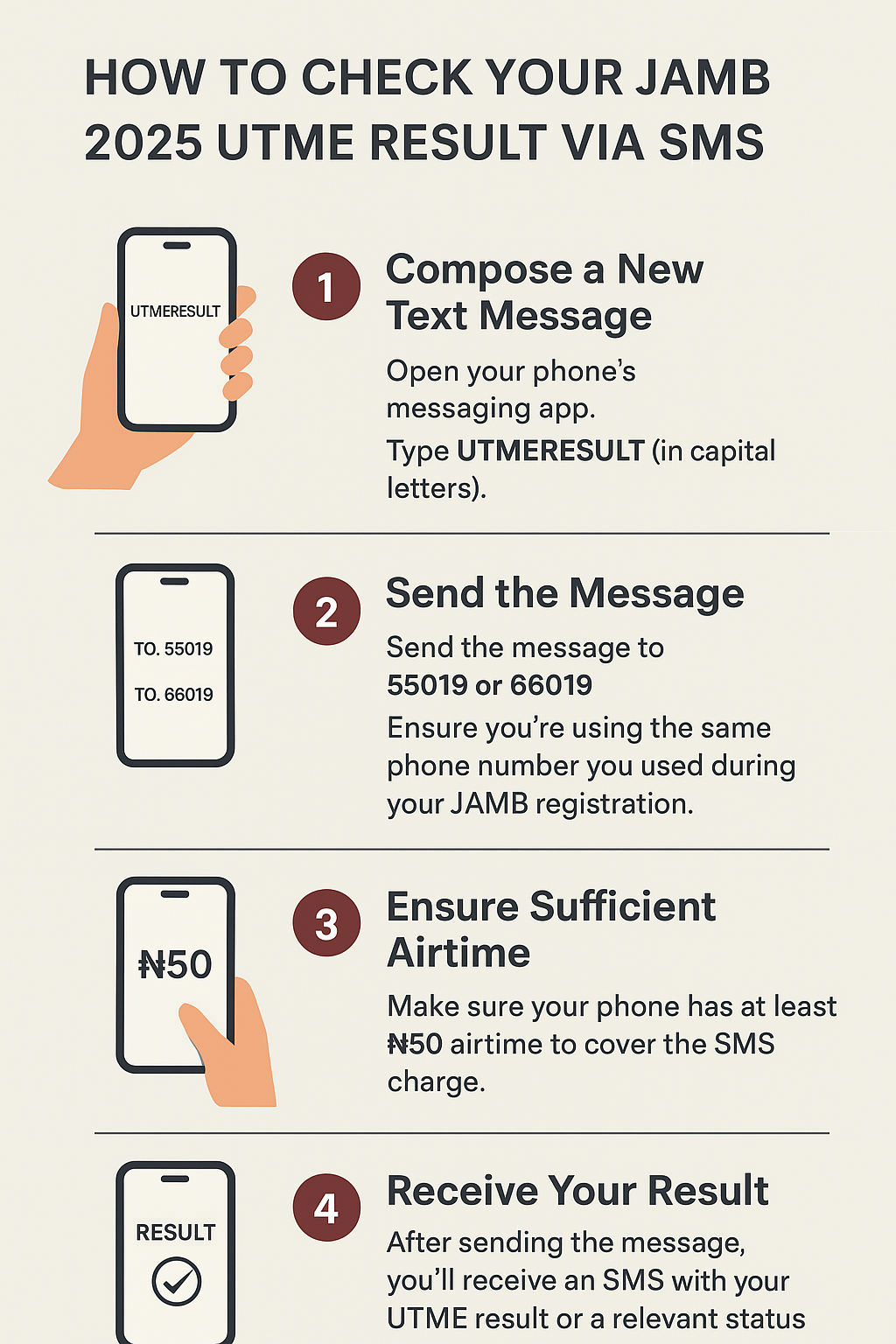Pursuing a degree in Public Health in Nigeria opens doors to careers in community health, disease prevention, and health policy development. However, gaining admission requires meeting specific criteria that vary across universities.
This guide covers:
- O’Level requirements
- UTME subject combinations
- Direct Entry requirements
- University-specific criteria
- FAQs for prospective students
By the end, you’ll have a clear roadmap to successfully apply for a Public Health program in Nigeria.
Contents
- O’Level Requirements for Public Health in Nigeria
- UTME Subject Combination for Public Health
- Direct Entry Requirements for Public Health
- Institution-Specific Admission Requirements
- Why Study Public Health in Nigeria?
- Common Challenges Students Face
- Frequently Asked Questions (FAQs)
- 1. What is the UTME subject combination for Public Health?
- 2. What is the cut-off mark for Public Health in Nigerian universities?
- 3. Can I study Public Health without Physics?
- 4. Do private universities in Nigeria offer Public Health?
- 5. What are the career prospects after studying Public Health?
O’Level Requirements for Public Health in Nigeria
To study Public Health, candidates must meet the following minimum O’Level criteria:
- 5 credit passes in SSCE (WAEC, NECO, or GCE).
- Compulsory subjects include:
- English Language
- Mathematics
- Biology
- Chemistry
- Physics
👉 Note: Some universities may accept alternatives like Health Science or Further Mathematics. Always check your chosen university’s admission portal.
UTME Subject Combination for Public Health
When registering for UTME (JAMB), candidates should select these four subjects:
- English Language (compulsory)
- Biology
- Chemistry
- Physics
This subject combination aligns with most Nigerian universities offering Public Health programs.
⚡ Tip: Aim for a UTME score of 200 and above to increase your chances of admission into top universities like UI, UNILAG, and ABU.
Direct Entry Requirements for Public Health
If you’re applying through Direct Entry (DE), you must meet one of the following:
- A’Level Passes:
- Two passes in Biology/Zoology, Chemistry, or Physics, plus three other O’Level credit passes.
- Registered Nursing (RN) Certificate or Equivalent:
- NRN or equivalent, plus five O’Level credits in English and four science subjects.
- OND/HND/First Degree:
- Some universities accept ND/HND in related health fields with a good grade.
Institution-Specific Admission Requirements
While general requirements apply nationwide, some universities add unique conditions.
Here are examples:
| University | Program | Special Admission Notes |
|---|---|---|
| University of Port Harcourt (UNIPORT) | B.Sc. & PGD in Public Health | PGD applicants need a good degree or HND (Upper Credit) in health-related fields. |
| Nile University of Nigeria | Master in Public Health (MPH) | Requires a minimum of Second Class Lower + 3 years relevant experience. |
| University of Ibadan (UI) | B.Sc. Public Health | Requires at least 5 SSCE credits including English, Mathematics, Biology, Chemistry, Physics. |
| Ahmadu Bello University (ABU) | B.Sc. Public Health | Direct Entry students need A’Level passes in Biology and Chemistry. |
| University of Lagos (UNILAG) | B.Sc. Public Health | Preference given to candidates with strong science background. |
👉 This shows why you must check the official admission portal of your preferred institution before applying.
Why Study Public Health in Nigeria?
- High Demand: Public Health professionals are needed in hospitals, NGOs, and government agencies.
- Diverse Career Options: Roles include epidemiologist, health educator, policy advisor, and environmental health officer.
- Further Studies: Opportunities for Masters and PhD both in Nigeria and abroad.
Common Challenges Students Face
- High Cut-off Marks in competitive universities.
- Limited Spaces due to rising demand.
- Different Requirements across institutions, which may cause confusion.
⚡ Solution: Always cross-check with the JAMB brochure and the university’s admission portal.
Frequently Asked Questions (FAQs)
1. What is the UTME subject combination for Public Health?
English, Biology, Chemistry, and Physics.
2. What is the cut-off mark for Public Health in Nigerian universities?
Most universities set it between 180–200, but top schools like UI and UNILAG may require 200+.
3. Can I study Public Health without Physics?
No. Physics is compulsory for most universities offering Public Health.
4. Do private universities in Nigeria offer Public Health?
Yes. Schools like Nile University, Babcock, and Bowen offer accredited Public Health programs.
5. What are the career prospects after studying Public Health?
Graduates can work as epidemiologists, health educators, community health officers, or pursue postgraduate research.
Studying Public Health in Nigeria requires meeting the right admission requirements — from O’Level credits to UTME subject combinations and Direct Entry pathways.
To maximize your chances:
- Ensure you meet the five core O’Level subjects.
- Select the correct UTME subject combination.
- Explore Direct Entry options if eligible.
- Verify university-specific criteria on official portals.
Public Health is a rewarding course with diverse career paths. If you are passionate about improving community well-being, this is the right field for you.
👉 Next Step: Check your preferred university’s official admission portal today to confirm updated requirements before applying.



